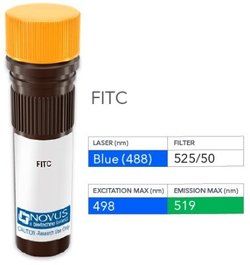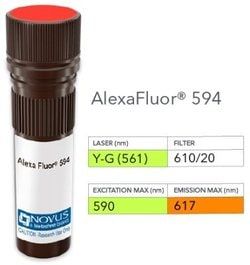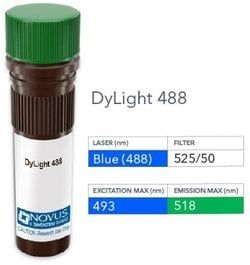alpha-Fetoprotein/AFP Antibody (C2 + C3 + MBS-12) - IHC-Prediluted, Novus Biologicals™
Manufacturer: Novus Biologicals
Select a Size
| Pack Size | SKU | Availability | Price |
|---|---|---|---|
| Each of 1 | NBP248111-Each-of-1 | In Stock | ₹ 45,078.50 |
NBP248111 - Each of 1
In Stock
Quantity
1
Base Price: ₹ 45,078.50
GST (18%): ₹ 8,114.13
Total Price: ₹ 53,192.63
Antigen
alpha-Fetoprotein/AFP
Classification
Monoclonal
Conjugate
Unconjugated
Formulation
10mM PBS and 0.05% BSA with 0.05% Sodium Azide
Gene Symbols
AFP
Immunogen
Recombinant full-length human alpha-Fetoprotein/AFP protein (Uniprot: P02771)
Purification Method
Protein A or G purified
Regulatory Status
RUO
Primary or Secondary
Primary
Test Specificity
It recognizes an oncofetal glycoprotein with a single chain of 70kDa, which is identified as alpha fetoprotein (AFP). This monoclonal antibody is highly specific to AFP and shows no cross-reaction with other oncofetal antigens or serum albumin. AFP is normally synthesized in the liver, intestinal tract, and yolk sac of the fetus. Antibody to AFP has been shown to be useful in detecting hepatocellular carcinomas (HCC) and germ cell neoplasms, especially yolk sac tumors.
Content And Storage
Store at 4C.
Isotype
IgG1 κ
Applications
Immunohistochemistry (Paraffin)
Clone
C2 + C3 + MBS-12
Dilution
Immunohistochemistry-Paraffin
Gene Alias
Alpha-1-fetoprotein, Alpha-fetoglobulin, alpha-fetoprotein, FETA, HP, HPAFP
Host Species
Mouse
Molecular Weight of Antigen
70 kDa
Quantity
7 mL
Research Discipline
Cancer, Cancer Stem Cells, GPCR, Stem Cell Markers, Tumor Biomarkers
Gene ID (Entrez)
174
Target Species
Human
Form
Purified
Description
- alpha-Fetoprotein/AFP Monoclonal specifically detects alpha-Fetoprotein/AFP in Human samples
- It is validated for Immunohistochemistry, Immunohistochemistry-Paraffin.





